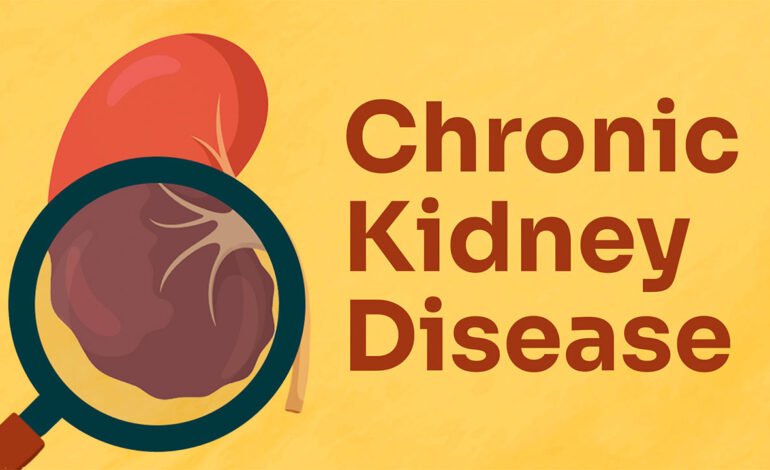
Heart Disease (Cardiovascular) Causes & how to manage it
Heart disease or cardiovascular disease (CVD) refers to a group of conditions that affect the heart and blood vessels. It includes a range of problems such as coronary artery disease (causing heart attacks), heart failure, arrhythmias (irregular heartbeats), and heart valve problems, among others.
Causes of Heart Disease (Cardiovascular Disease):
Atherosclerosis (Plaque Build-Up):
A major cause of heart disease, where fatty deposits (plaque) build up in the arteries, narrowing and hardening them, restricting blood flow. This can lead to heart attacks, strokes, or peripheral artery disease.
High Blood Pressure (Hypertension):
High blood pressure puts extra strain on the heart and blood vessels, leading to their damage over time. This can lead to heart failure, heart attacks, and strokes.
High Cholesterol:
Elevated levels of bad cholesterol (LDL) and low levels of good cholesterol (HDL) can contribute to plaque build-up in the arteries, increasing the risk of heart disease.
Smoking:
Smoking damages the blood vessels, increases blood pressure, and promotes plaque formation, significantly raising the risk of heart disease.
Obesity:
Excess body weight, especially abdominal fat, increases the risk of developing high blood pressure, high cholesterol, and diabetes, all of which can contribute to heart disease.
Diabetes:
People with diabetes are at a higher risk for heart disease, as high blood sugar levels can damage the blood vessels and lead to atherosclerosis.
Physical Inactivity:
A lack of exercise contributes to obesity, high blood pressure, high cholesterol, and poor heart health.
Family History and Genetics:
A family history of heart disease can increase an individual’s risk, suggesting a genetic predisposition.
Excessive Alcohol Consumption:
Drinking too much alcohol can increase blood pressure, raise cholesterol, and contribute to weight gain, all of which can elevate heart disease risk.
Poor Diet:
Diets high in processed foods, unhealthy fats (trans fats and saturated fats), refined sugars, and sodium contribute to high cholesterol, high blood pressure, and obesity.
Stress:
Chronic stress, particularly combined with poor lifestyle choices like unhealthy eating or smoking, can increase the risk of heart disease by raising blood pressure and promoting unhealthy behaviors.
Age:
As we age, the risk of heart disease increases, especially after age 45 for men and 55 for women, due to changes in the blood vessels and heart.
Gender:
Men typically have a higher risk of heart disease at a younger age compared to women, although the risk for women increases after menopause.
How to Maintain Heart Health through Daily Life:
Eat a Heart-Healthy Diet:
Fruits and Vegetables: Aim to fill half your plate with fruits and vegetables, which are rich in vitamins, minerals, and fiber.
Whole Grains: Choose whole grains (e.g., whole wheat bread, oats, brown rice) instead of refined grains to help maintain healthy cholesterol and blood sugar levels.
Healthy Fats: Focus on healthy fats like those from avocados, nuts, seeds, and olive oil. Limit saturated fats (found in red meat and full-fat dairy) and avoid trans fats (found in processed foods).
Reduce Sodium Intake: Limit salt to less than 2,300 mg per day (ideally around 1,500 mg for heart health) to help lower blood pressure.
Lean Proteins: Choose lean proteins such as fish (especially fatty fish like salmon), poultry, legumes, and plant-based proteins like tofu or lentils.
Limit Sugar: Reduce consumption of sugary drinks, processed snacks, and desserts, which can contribute to obesity and type 2 diabetes.
Exercise Regularly:
Aerobic Exercise: Engage in at least 150 minutes of moderate-intensity aerobic exercise per week, such as brisk walking, cycling, or swimming.
Strength Training: Incorporating strength training exercises 2–3 days a week can help improve muscle mass, metabolism, and overall heart health.
Stay Active: Avoid sedentary behavior. Take short walks, use stairs instead of the elevator, and stay active throughout the day.
Maintain a Healthy Weight:
Achieve and maintain a healthy weight through a combination of a balanced diet and regular exercise. Losing just 5-10% of body weight can significantly improve heart health by lowering blood pressure, cholesterol, and blood sugar levels.
Quit Smoking:
Stop smoking to significantly reduce the risk of heart disease. Smoking damages the blood vessels and contributes to the development of atherosclerosis.
Limit Alcohol Consumption:
Drink alcohol in moderation if you choose to drink: up to one drink a day for women and two drinks a day for men. Excessive drinking can raise blood pressure and increase risk factors for heart disease.
Manage Stress:
Practice stress-reducing techniques: Incorporate relaxation methods such as deep breathing, meditation, yoga, or mindfulness to manage daily stress.
Get enough sleep: Aim for 7-9 hours of sleep per night. Chronic sleep deprivation can increase the risk of heart disease by raising blood pressure and affecting other risk factors.
Monitor Blood Pressure and Cholesterol:
Regularly check blood pressure and cholesterol levels. If they are high, work with your doctor to manage them through lifestyle changes and/or medications.
If you have high blood pressure, consider reducing sodium intake, limiting alcohol, and increasing physical activity.
Manage Diabetes:
Control blood sugar levels through a healthy diet, regular exercise, and taking medications if necessary. Uncontrolled diabetes significantly raises the risk of heart disease.
Stay Hydrated:
Drink plenty of water to keep the body hydrated, supporting proper circulation and overall heart function. Avoid sugary drinks or excessive caffeine.
Know Your Family History:
If heart disease runs in your family, inform your healthcare provider so they can monitor you more closely and guide you in preventive measures.
Regular Health Check-ups:
Get regular check-ups to monitor your heart health, blood pressure, cholesterol, and blood sugar levels. Early detection and treatment can prevent or manage heart disease.
Conclusion:
Maintaining heart health is largely about adopting a lifestyle that includes a healthy diet, regular physical activity, stress management, and avoiding harmful habits like smoking and excessive drinking. By controlling risk factors such as blood pressure, cholesterol, and blood sugar levels, and maintaining a healthy weight, you can reduce the risk of heart disease significantly. Regular check-ups and proactive care are key to preventing or managing heart disease.



